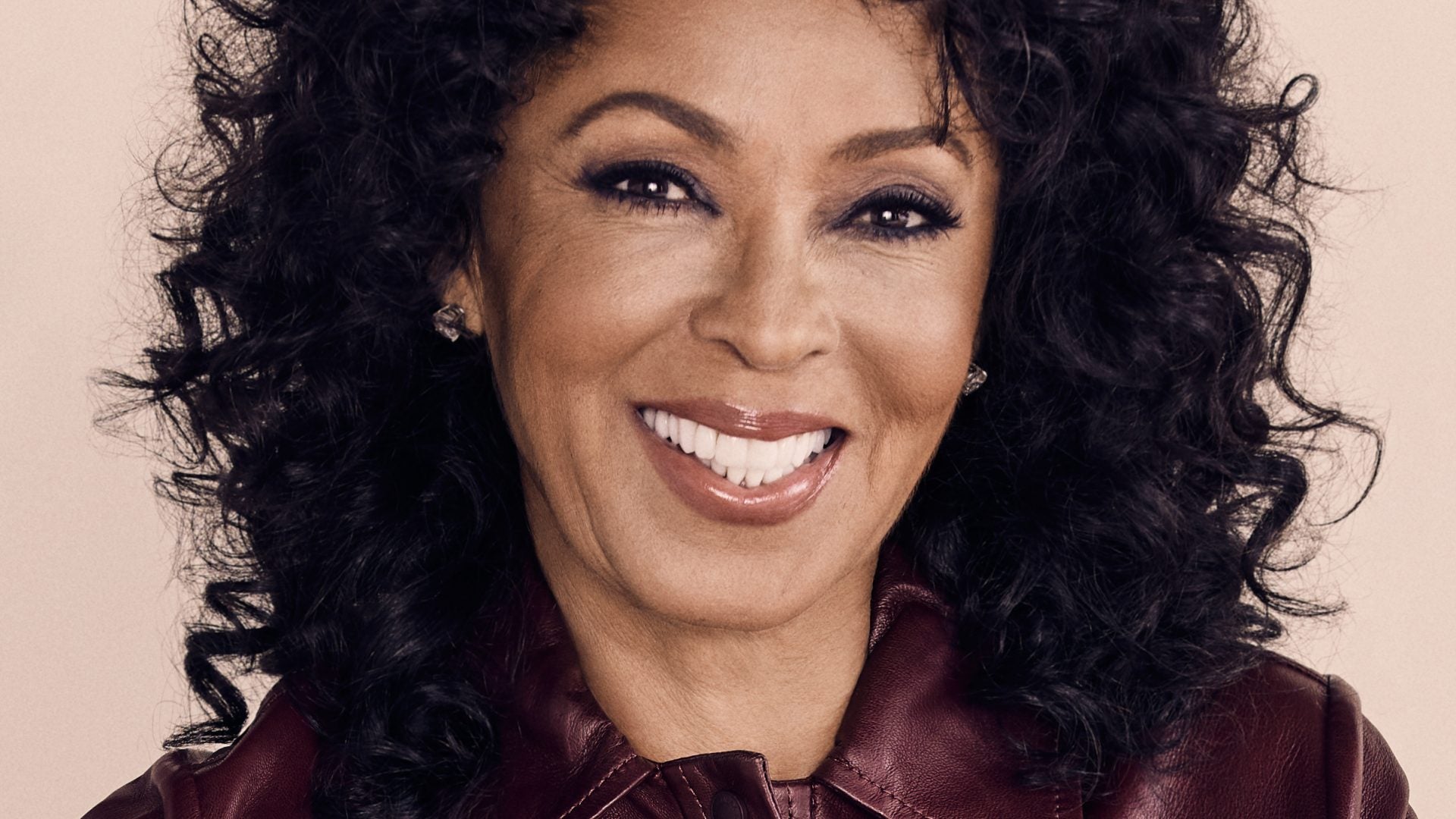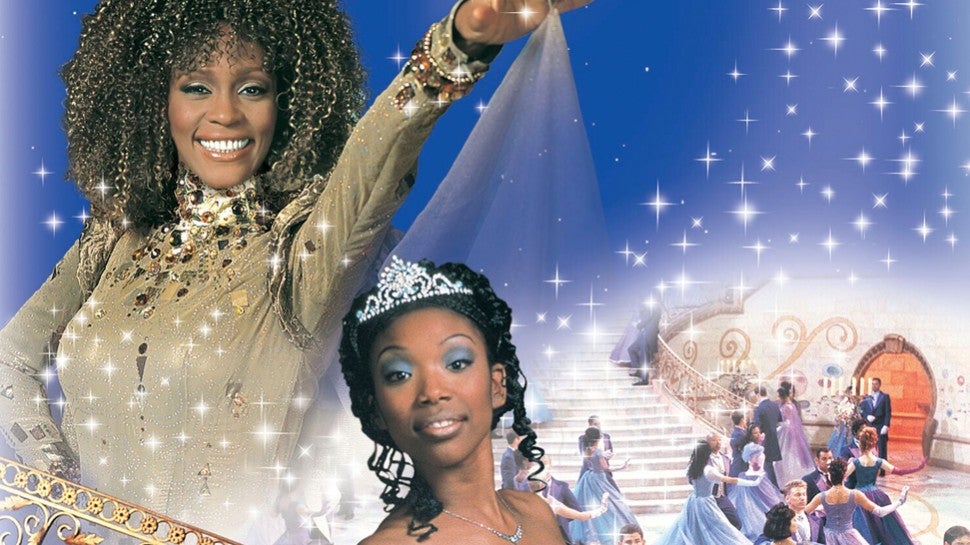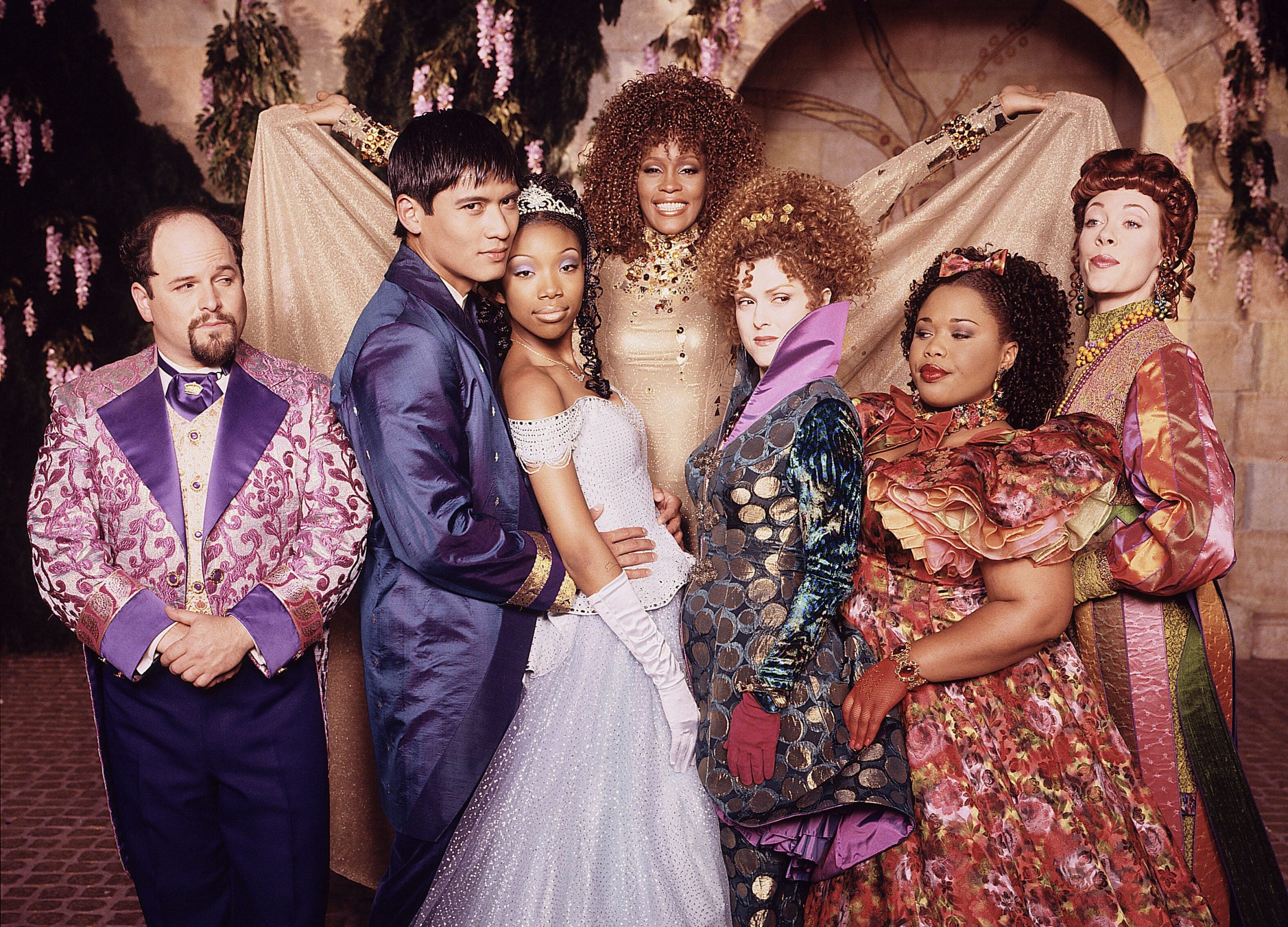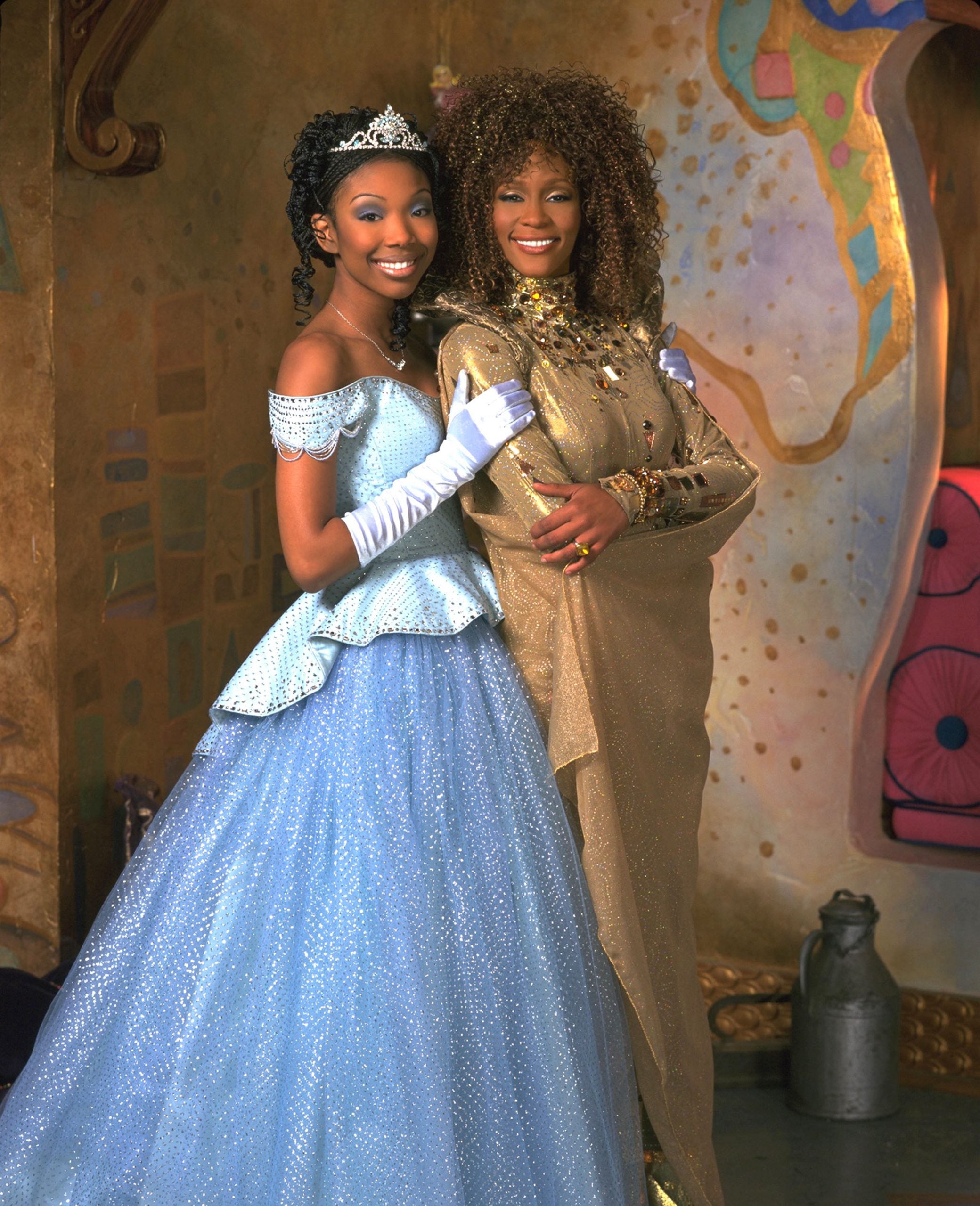
To say the absolute least, Debra Martin Chase has cultivated Black culture through her groundbreaking work as an entertainment producer for more than 30 years. From being the first African-American female producer to have a deal at a major studio to her recently announced CBS’ remake of The Equalizer with Queen Latifah, which premiered Super Bowl Sunday, Chase has solidified her status as a trailblazer. And if you didn’t already know, the Emmy-nominated producer’s credits include the 1997 production of Rodgers & Hammerstein’s Cinderella, which officially became available on Disney+ today.

The Emmy award-winning film is filled with a star-studded cast, including Brandy and the late Whitney Houston, all of whom’s talents greatly contributed to the film achieving the legendary status it still holds today. Few Black women can say they’ve worked with the best of the best in the industry to create work with such longevity, but Chase is among the few. She’s also the first Black woman to produce a film that grossed over $100 million, which she did with Courage Under Fire. ESSENCE spoke with Chase about the highly-anticipated return of Cinderella and creating positive, realistic, and relatable Black narratives on screen.
ESSENCE: How does it feel reviving Cinderella and seeing it be added to this new Disney+ platform?
DEBRA MARTIN CHASE: I have to tell you, it’s a little crazy that over 25 years later, I’m still doing interviews on Rodgers & Hammerstein’s Cinderella in the most wonderful way. It’s one of the things in my career that I am the most proud of, it’s one of the things that was most difficult to put together and I love that it’s been handed down to generations. Now that it’s on Disney+, it’ll get a whole new audience. So many people have told me that they haven’t seen it in years, how important it was to them, they can’t wait to tune in today to see it – that kind of fervor. It’s very special.
What was your initial vision when bringing it to life 25 years ago, and how did it compare to how it came out?
CHASE: I’m sure it exceeded. When I was partners with Whitney Houston, we had a company at Disney and literally my first day on the job, the late dear Craig Zadan and Neil Meron called me and were like, “Look, we have Cinderella sitting over there. Rodgers and Hammerstein’s Cinderella with Whitney, we haven’t been able to get any traction. If you like this idea, can you help us?” For me, I grew up on the Lesley Ann Warren version of Cinderella that came on once a year and it was must-see TV. I instantaneously knew what it would have meant for me growing up to have seen a Black Cinderella. When I started talking to Whitney about it, we both felt that she was too old to be Cinderella. I mean, that was just the reality. At that point, she was in her mid-30’s, she had a baby and she just wasn’t the dewy-eyed young woman. As we talked it through, it was important to her too to bring this version to life. We all decided with Craig and Neil that the fairy godmother would be awesome and we actually added some additional songs for her in that role. Brandy, at that point, was on Moesha, had a hugely successful first album out and she really was the natural and beautiful choice for Cinderella.

How did the entire cast and crew, including the late Whitney Houston and Brandy, pull together to bring this vision to life?
CHASE: I think I’ve said it already three times, but this was one of the most difficult things. The casting on this was so difficult. Craig, Neil and I had this vision of multicultural casting and we really were creating an ethnic mosaic and each piece was plotted. It hadn’t been done before so a lot of people were skeptical about whether or not the public would accept it, there were white actresses who felt uncomfortable being the stepmother and being mean to a Black girl. Thankfully, Bernadette Peters shared our vision for what this was gonna be and she understood that it was about the whole of it and what it would mean in the world. She signed on it and obviously was brilliant. It was a long journey but oh my God, the cast that we assembled and every single person is extraordinary.
What were some of your favorite memories from being on-set and filming?
CHASE: Oh my God, so many. First of all, I think about the dance numbers in the ballroom of the palace and those gorgeous dresses by our costume designer Ellen Mirojnick, who actually just did Bridgerton. It’s actually a nice bridge between the two. Rob Marshall, who’s now an A-plus director with our choreographer and we had the best dancers in the country because everybody wanted to be part of what looked to be very special. The dance numbers were just so romantic and magical and swoony. When Whitney and Brandy did “Impossible,” it was just so magical. You just knew that you were creating something really, really special. I have so many stories about it.
The first time I saw Whitney in that gold fairy godmother dress with the big hair, she looked unbelievably beautiful. She loved it and she loved the outfits so much. Whoopi [Goldberg] decided that to really get into her role as the queen, she needed real jewels. She went to Harry Winston and arranged to have like $1 million worth of jewels on and there were two conservative men in suits that followed her everywhere on set keeping their eyes on the jewels. That was fun, but that was just a few of the things.

What has this version of Cinderella done for the Black community when it comes to visibility and representation across all boards?
CHASE: Brandy as Cinderella was really the first Black princess and certainly the first Black Disney princess. I know what it meant to me. I went to Mount Holyoke College, I was on the Board of Trustees and I brought Brandy up to do a one-on-one interview with her and a reception for the girls. The Black girls came up in tears and they were sobbing. Each one talked about how seeing Brandy as Cinderella changed their self-image, their view on what they can accomplish or be in the world, and were just thanking her. That’s what it was all about. Black girls and women reaffirming for us that we can be everything in the world and anything that we want to be. Society was not telling us that at that time.
What was the film industry like for Black women back then, and how has it evolved since you first started in the industry?
CHASE: Night and day! [I’m] one of the first, if not the first Black woman to produce a mainstream movie at a major movie studio. I’m the first Black woman to produce a deal at a major studio and when i got here, who knew? I practiced law, there were not a lot of Black people, certainly not Black women in the major law firms but they were still there. I got to Hollywood and I was like, “Oh my God, this industry is like 15 years behind the rest of the corporate world.” It was a struggle and it used to feel like I’m pushing a boulder up a hill but I got into the business because I always loved film and television. Growing up, I never saw,or very rarely saw, people and women who looked and felt like me. I knew that stereotypes that were being perpetuated by men were bad and damaging, and I wanted to fight to change how we were presented on screen.
It’s huge that you’re the first Black woman producer to have a deal at a major studio. What did this mean for your career?
CHASE: It was huge! It was not one of those things you realize in the moment. When Nina Jacobson, who has a great champion of mind and head of the studio, called me into her office after The Princess Diaries opened big and said she was giving me a deal and kind of putting the power of the studio behind me, I tearfully thanked her. It wasn’t until later that night when I was talking to friends and colleagues that we realized that this was a first. It was a huge deal and all of a sudden, the Walt Disney Company was saying, “This is one of our family members. We want to be in business with her and we’re gonna give her all the support that we have.” That’s game changing and that put me in a whole other league.
How did you use this position to elevate and create other positions for Black women?
CHASE: I’ve always believed in paying it forward because people have always been great to me. When I was running Denzel [Washington’s] company, one of my interns was Shonda Rhimes and I gave Shonda her first paid writing job and she wrote The Princess Diaries 2 for me. I’ve hired female directors of color, Sanaa Hamri wrote Sisterhood of the Traveling Pants 2 for me, Patricia Riggen, who is Mexican, did my Lemonade Mouth musical on Disney Channel, Alison Taylor wrote the original The Cheetah Girls. It’s always been important for me to bring people with me because if we don’t take care of each other and look out for each other, you can’t count that anybody else is.
A lot of your work focuses on the realistic and relatable narratives of women of all ages from Just Wright, The Cheetah Girls and Sparkle. How does it feel for your work to still hold weight and relevance for millennial women today?
CHASE: I’m thrilled, but it’s a testimony. If you tell good stories and if you have a vision for the stories that you wanna tell, people will come. I did Harriet a couple years ago and it took me 6 years to get that movie made. Working with another brilliant female director Kasi Lemmons, who’s a dear friend, and Cynthia Erivo. I saw her onstage in The Color Purple and immediately said, “That’s our Harriet.” It’s so fulfilling and why I got into this business. The fact that at this stage in my career I’m still able to tell stories and put images on screen that inspire all people, but particularly Black women, is huge. It makes the battles, the slings and the arrows that inevitably come along with getting stuff done in this business all worthwhile.
Speaking of working with Black women, you’re now working on CBS’ The Equalizer with Queen Latifah. We know that you two worked together before on Just Wright, but how does it feel for this to be another full-circle moment with her?
CHASE: This has been a great journey that we’ve been on together. I adore her, she’s the best and she’s both my star and executive producing partner on this show. We have been working super hard, she’s been working super hard and we’re really proud of the show. They gave us the slot after the Super Bowl on CBS and put so much faith and belief in the show, and it did really well. In this moment, to have a Black woman who is helping to right the scales of justice in our society in this moment post-George Floyd and in the midst of Black Lives Matter, #MeToo and people feeling hopeless but wanting to create more opportunities for everybody in this country, and to have Queen Latifah as Robyn McCall at the center of the show is really powerful and great.
Did you ever expect that Cinderella along with all of your other work would have this type of impact over the course of your career?
CHASE: It’s what I hoped for. You can never expect that you’ve connected people with audiences in this way but it’s everything that I hoped for.